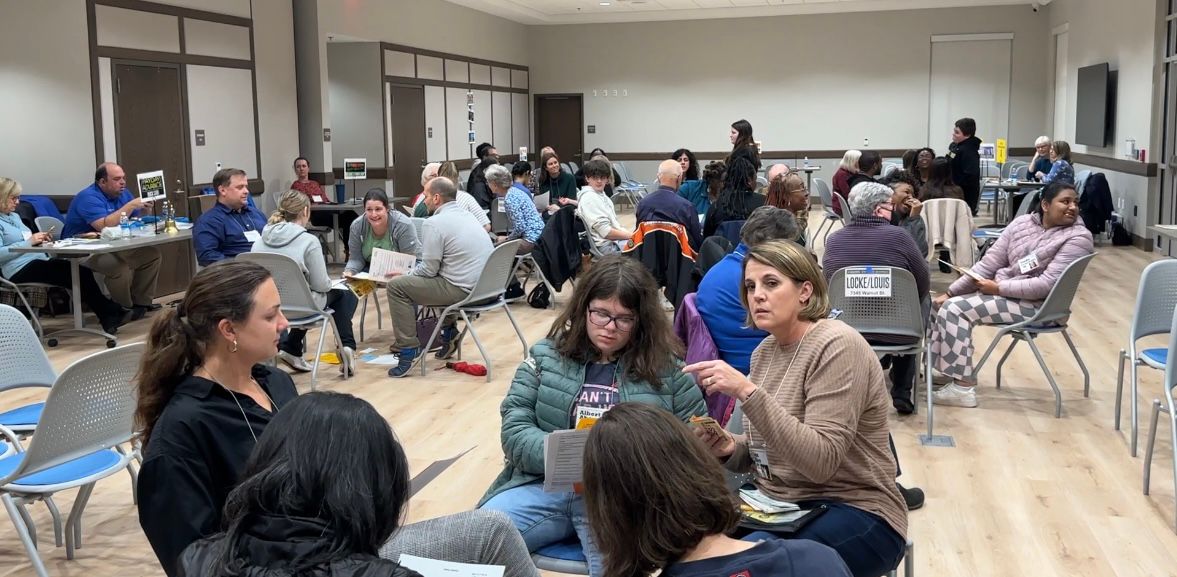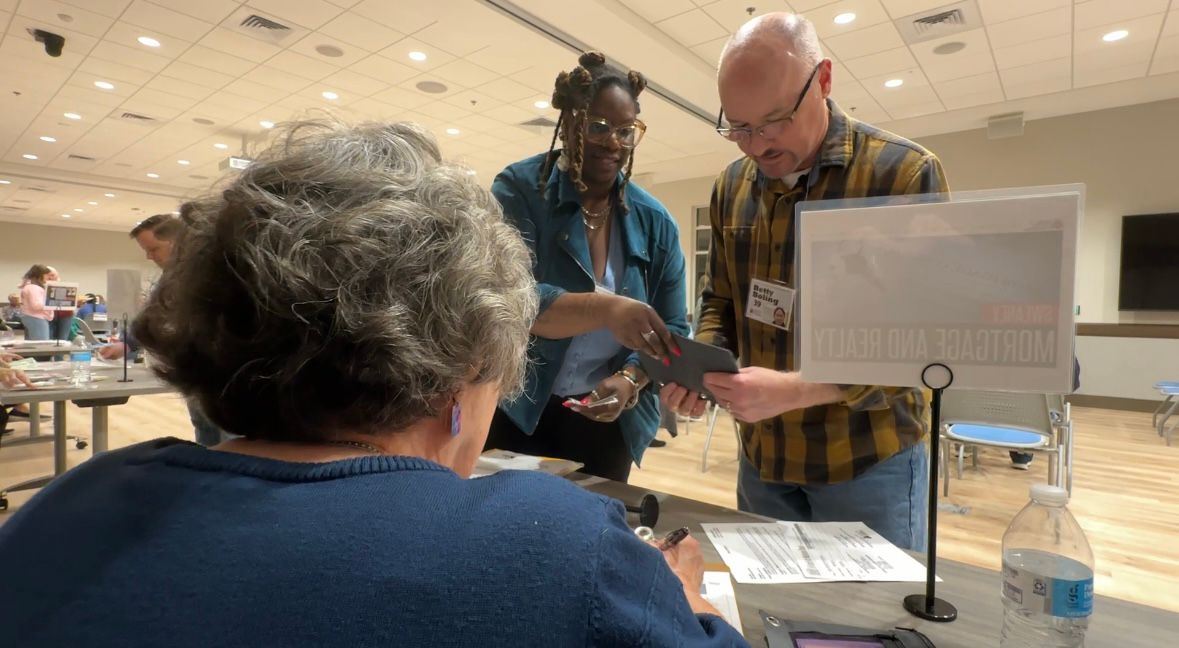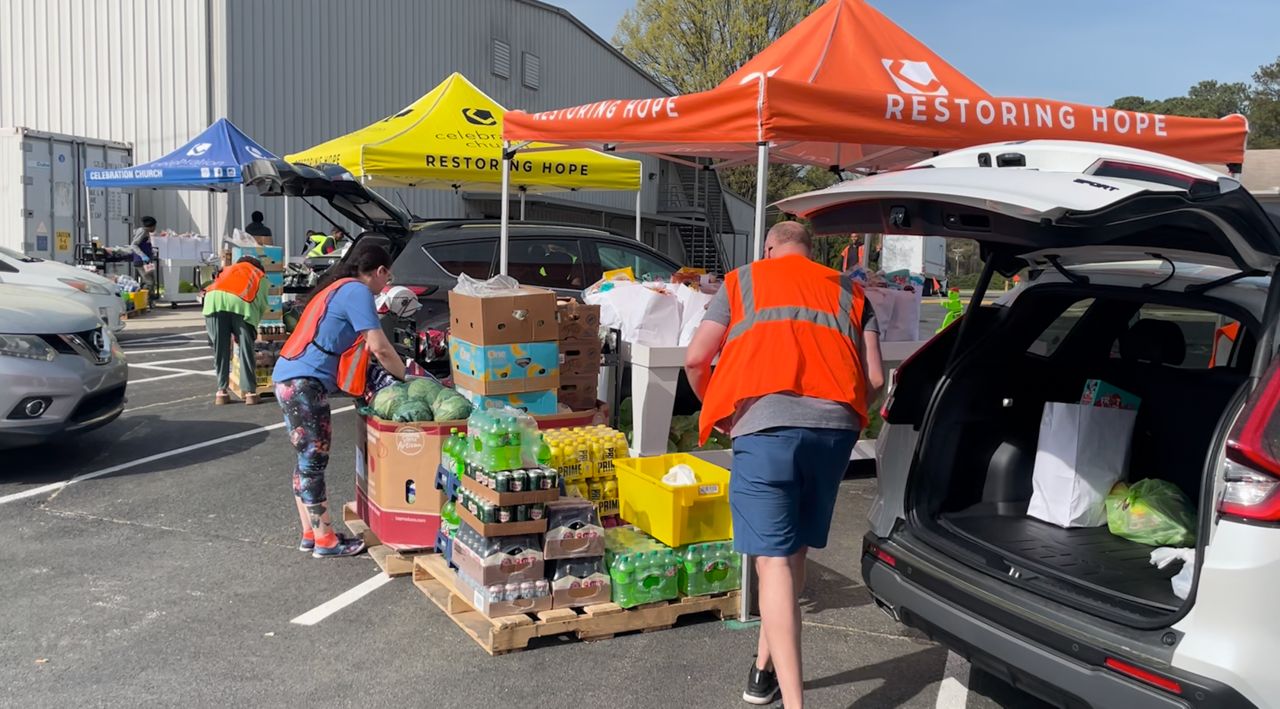LEWISVILLE, N.C. — Almost 1.5 million people live in poverty in North Carolina, according to a 2022 Census estimate. That's less than $15,000 a year for an individual or $30,000 for a family of four.
What You Need To Know
- Crisis Control Ministry helps the community with many needs including food, rent, utilities and medication
- They hold poverty simulations to have others gain a deeper empathy for those in poverty
- The simulation is not a game and should be taken seriously
Crisis Control Ministry is one of the largest emergency assistance providers in Forsyth County, helping thousands of people with mortgage and rent payments, food, medications, and utility bill assistance, according to their website.
Besides helping give back to the community, Crisis Control Ministry is helping other members of the community understand and gain empathy for fellow neighbors living below the poverty line through a poverty simulation.
“Unless you walk that mile, you really don't know all that someone experiences on that journey,” said Sandi Scannelli, the President and CEO of the Shallow Ford Foundation.

The foundation helps sponsor events, like at Mary Alice Warren Community Center, helping bring events that are more accessible to the Clemmons, Lewisville and Yadkin County areas.
“We are interested in changing the circumstances that cause poverty. ... This is a great program for folks to better understand poverty and perhaps some of the ways to help change those circumstances, so that ... episodic poverty does not become chronic poverty,” said Scannelli.
The first simulation was held in 2016 at Easton and Whitaker Elementary schools for their staff. Since then, about 3,000 people have participated in the simulation.
During the simulation, participants are given a new identity with a new family and set of challenges they have to face. This includes paying bills, student loans, rent, food, utilities, car payments and more. Some families are homeless, others have retirement income or disability, one family member could be employed, or other scenarios.
Dan Schuller, is a board member at Crisis Control Ministry and took place in the simulation for the first time, turning in his job as an account manager at a software company to be Betty Boling, a 39-year-old mother of three, who is the only one employed in the family.
“How in the world do you manage all of the everyday reality of living with three children and a spouse who's looking for employment and you making and being the only person that can try to make ends meet and still falling short? How frustrating that must be,” said Schuller.
The simulated mother is making just over $1,000 a month and bringing home a paycheck of $331 a week.
“I automatically start thinking of things like, do we need to look at pawning off things to be able to bring some extra cash into the household to make ends meet? I hope we don't have to do that, but that was one of my considerations when I when I saw that the budget was going to be really tight,” said Schuller.
In the simulation, Betty’s eldest child was also expecting a baby, but with such a tight budget, the family debated on pawning off home essentials, such as their stove.
“How do you weigh, like having a stove in this case or a microwave, and having clothes on your back, or food that you could get and make work with either a stove or a microwave for the long term? I mean, it's a tough decision in which I don't know how you necessarily weigh that in your mind, but when you're desperate, what do you do?,” said Schuller.
With Betty’s simulated husband looking for a job, and the kids out of school on holiday, many families left their simulated underage children at home alone, similar to the 12.8% of families who report living below the poverty line in the state.
“It's not easy to navigate the system because there's obstacles. Every turn that you make and every turn you take, it seems like you've got to go higher and higher over the obstacles,” said Schuller.

With tight budgets and expenses racking up, multiple families went without giving their kids Valentine's Day candy for school or went without their medication to make sure they didn’t get evicted.
“I can only imagine if you're doing this. As our moderator said, day in and day out, that, that kind of stress to those folks, it's just going to be incredible and daunting,” said Schuller.
He says he was stressed during this simulation, even sweating at the weight to provide for his new family. Luckily, the family was able to receive assistance from the Crisis Control Ministry for rent and utility help to make ends meet.
“People need to understand there is help out in the community. And sometimes you just don't know that it's there and where to go to find it. … I absolutely have a better sense of empathy for that. And even single parents that are still working, just from the transportation challenges. I can only imagine what it's like when you've got kids and you're a single parent and you're working full time just to take care of everything you need to get taken care of during the course of a week,” said Schuller.
Betty was also arrested in the simulation, but her simulated husband was able to find a job to help meet their bills by the end of the month.









